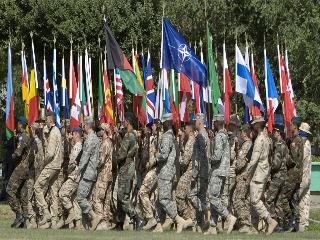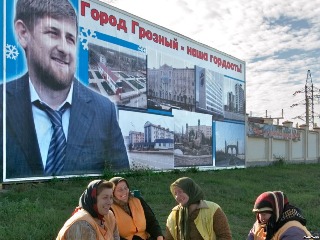“CACI Analyst, October 30, 2013”
NATO in Afghanistan – Paralysis as Policy?
By Richard Weitz (the 30/10/2013 issue of the CACI Analyst)
NATO’s inability to commit to a definite role in Afghanistan beyond 2014, along with perceived strategic setbacks in Central Asia and the South Caucasus, are reinforcing the narrative promoted by the Taliban, al-Qaeda, Iran, and to a lesser extent Russia and China, that a war-weary West is abandoning Eurasia. Urgent measures are needed during the next months to reverse this perception before it gains irreversible momentum. The perception is already leading regional players to hedge against the expected consequences of a diminished NATO role. NATO needs to reaffirm and clarify its commitment to Afghanistan and Eurasia.

Ignoring All the Problems Involved, Kadyrov's Chechnya Bets on Tourism
By Tomas Šmíd (the 30/10/2013 issue of the CACI Analyst)
Chechnya’s economy has been struggling with long-term problems, which have had a significant and visible impact on standards of living in the republic. Post-war reconstruction of the economy is far from accomplished and development is still hindered by an enormous level of unemployment. This provides a ground for both emigration and open sympathies with the opposition, which is currently represented by the radical Islamist wing alone. The Chechen government itself endeavors to spur some sectors of the economy, e.g. the tourist industry; however any major progress can hardly be expected without the implementation of significant political-economic reforms, and above all, an improvement of civic freedoms.

“CACI Analyst, September 18, 2013”
Moscow Signals Intention to Establish Greater Control Over Chechnya
By Valeriy Dzutsev (the 18/09/2013 issue of the CACI Analyst)
An increasing number of conflicts between Chechnya’s strongman Ramzan Kadyrov and Moscow may signify that the Russian government is gearing up to change the status quo in Chechnya. Regional authorities and Kadyrov himself have long been exempt from Russian law, which Russian leaders have motivated as a necessity for keeping Chechnya stable. Kadyrov’s success in keeping Moscow at bay has to a large extent depended on his personal relationship with President Putin. Growing resentment among ethnic Russians against North Caucasians and Putin’s weakening position make a tougher position on Moscow’s part against Chechnya’s pro-Moscow government more likely, a development that may have numerous unintended consequences.



